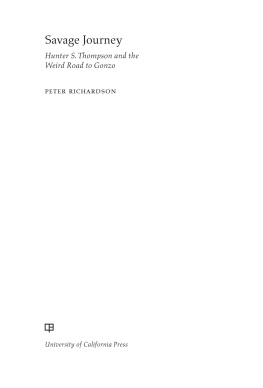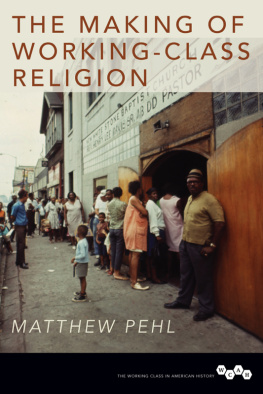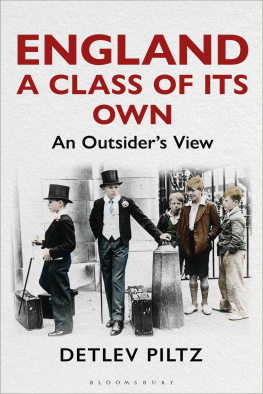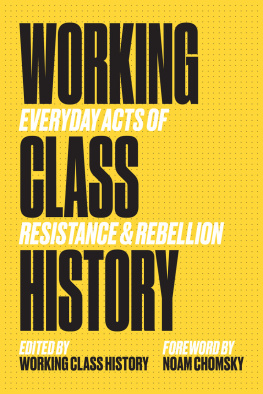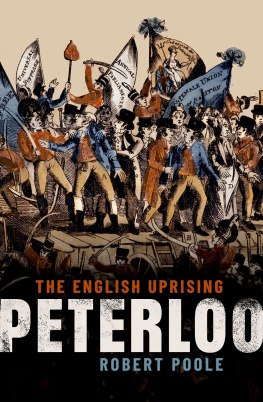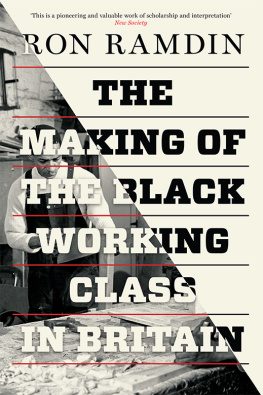PENGUIN BOOKS
THE MAKING OF THE ENGLISH WORKING CLASS
E. P. Thompson was born in 1924, and read history at Corpus Christi College, Cambridge, graduating in 1946. His time there was interrupted by war service in Italy. From 1948 until 1965 he was extra-mural Lecturer at Leeds University in the West Riding and he was also Reader at the Centre for the Study of Social History at the University of Warwick. A freelance writer and admired historian, he was also a founder of END and a Vice-President of CND. E. P. Thompson was made a Fellow of the British Academy in 1992, and was a Foreign Honorary Member of the American Academy of Arts and Sciences. After his time at Warwick University, E. P. Thompson held no permanent academic posts, but was a visiting professor at several American universities. He died in 1993, survived by his wife and two sons.
Thompsons first major work was his biography, William Morris: Romantic to Revolutionary, which first appeared in 1955 (revised edition, 1977). The Making of the English Working Class was instantly recognized as a classic on its publication in 1963 and secured his position as one of the leading social historians of his time. Other books include Whigs and Hunters and The Poverty of Theory and Other Essays. His last book, Customs in Common (1991), is a study of eighteenth-century popular beliefs and behaviour. An active campaigner on the left and a key figure in the ending of the Cold War, his writings on public issues include Writing by Candlelight, Beyond the Cold War, The Heavy Dancers and Double Exposure. In 1988 he published his first novel, a political allegory entitled The Sykaos Papers. Several of his books are published in Penguin.
In a tribute to Thompson in the Independent, E. J. Hobsbawm declared that he had not just talent, brilliance, erudition and the gift of writing but the capacity to produce something qualitatively different from the rest of us, not to be measured on the same scale. Let us simply call it genius, in the traditional sense of the word.
THE MAKING OF THE ENGLISH WORKING CLASS

E.P. THOMPSON

PENGUIN BOOKS
PENGUIN BOOKS
Published by the Penguin Group
Penguin Books Ltd, 80 Strand, London WC2R 0RL, England
Penguin Putnam Inc., 375 Hudson Street, New York, New York 10014, USA
Penguin Books Australia Ltd, 250 Camberwell Road, Camberwell, Victoria 3124, Australia
Penguin Books Canada Ltd, 10 Alcorn Avenue, Toronto, Ontario, Canada M4V 3B2
Penguin Books India (P) Ltd, 11 Community Centre, Panchsheel Park, New Delhi 110 017, India
Penguin Books (NZ) Ltd, Cnr Rosedale and Airborne Roads, Albany, Auckland, New Zealand
Penguin Books (South Africa) (Pty) Ltd, 24 Sturdee Avenue, Rosebank 2196, South Africa
Penguin Books Ltd, Registered Offices: 80 Strand, London WC2R 0RL, England
www.penguin.com
First published by Victor Gollancz 1963
Published with revisions in Pelican Books 1968
Reprinted with new preface 1980
Reprinted in Penguin Books 1991
Copyright E. P. Thompson, 1963, 1968, 1980
All rights reserved
Except in the United States of America, this book is sold subject to the condition that it shall not, by way of trade or otherwise, be lent, re-sold, hired out, or otherwise circulated without the publishers prior consent in any form of binding or cover other than that in which it is published and without a similar condition including this condition being imposed on the subsequent purchaser
ISBN: 978-0-14-193489-1
TO DOROTHY AND
JOSEPH GREENALD
Contents
Preface
T HIS book has a clumsy title, but it is one which meets its purpose. Making, because it is a study in an active process, which owes as much to agency as to conditioning. The working class did not rise like the sun at an appointed time. It was present at its own making.
Class, rather than classes, for reasons which it is one purpose of this book to examine. There is, of course, a difference. Working classes is a descriptive term, which evades as much as it defines. It ties loosely together a bundle of discrete phenomena. There were tailors here and weavers there, and together they make up the working classes.
By class I understand a historical phenomenon, unifying a number of disparate and seemingly unconnected events, both in the raw material of experience and in consciousness. I emphasize that it is a historical phenomenon. I do not see class as a structure, nor even as a category, but as something which in fact happens (and can be shown to have happened) in human relationships.
More than this, the notion of class entails the notion of historical relationship. Like any other relationship, it is a fluency which evades analysis if we attempt to stop it dead at any given moment and anatomize its structure. The finest-meshed sociological net cannot give us a pure specimen of class, any more than it can give us one of deference or of love. The relationship must always be embodied in real people and in a real context. Moreover, we cannot have two distinct classes, each with an independent being, and then bring them into relationship with each other. We cannot have love without lovers, nor deference without squires and labourers. And class happens when some men, as a result of common experiences (inherited or shared), feel and articulate the identity of their interests as between themselves, and as against other men whose interests are different from (and usually opposed to) theirs. The class experience is largely determined by the productive relations into which men are born or enter involuntarily. Class-consciousness is the way in which these experiences are handled in cultural terms: embodied in traditions, value-systems, ideas, and institutional forms. If the experience appears as determined, class-consciousness does not. We can see a logic in the responses of similar occupational groups undergoing similar experiences, but we cannot predicate any law. Consciousness of class arises in the same way in different times and places, but never in just the same way.
There is today an ever-present temptation to suppose that class is a thing. This was not Marxs meaning, in his own historical writing, yet the error vitiates much latter-day Marxist writing. It, the working class, is assumed to have a real existence, which can be defined almost mathematically so many men who stand in a certain relation to the means of production. Once this is assumed it becomes possible to deduce the class-consciousness which it ought to have (but seldom does have) if it was properly aware of its own position and real interests. There is a cultural superstructure, through which this recognition dawns in inefficient ways. These cultural lags and distortions are a nuisance, so that it is easy to pass from this to some theory of substitution: the party, sect, or theorist, who disclose class-consciousness, not as it is, but as it ought to be.
But a similar error is committed daily on the other side of the ideological divide. In one form, this is a plain negative. Since the crude notion of class attributed to Marx can be faulted without difficulty, it is assumed that any notion of class is a pejorative theoretical construct, imposed upon the evidence. It is denied that class has happened at all. In another form, and by a curious inversion, it is possible to pass from a dynamic to a static view of class. It the working class exists, and can be defined with some accuracy as a component of the social structure. Class-consciousness, however, is a bad thing, invented by displaced intenectuals, since everything which disturbs the harmonious coexistence of groups performing different social rles (and which thereby retards The problem is to determine how best it can be conditioned to accept its social rle, and how its grievances may best be handled and channelled.
Next page

